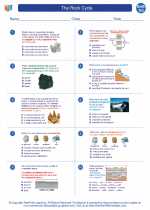Mass in Physics
Mass is a fundamental concept in physics that measures the amount of matter in an object. It is a scalar quantity, which means it has magnitude but no specific direction. The standard unit of mass in the International System of Units (SI) is the kilogram (kg).
Measuring Mass
Mass can be measured using a balance scale or electronic scale. The mass of an object remains constant regardless of its location, whereas weight depends on the force of gravity acting on the object.
Mass vs. Weight
It's important to distinguish between mass and weight. Mass is a measure of the amount of matter in an object, while weight is the force exerted on an object due to gravity. The weight of an object can change based on the strength of the gravitational field, but its mass remains constant.
Mass and Inertia
Mass also determines an object’s resistance to acceleration, known as inertia. The greater the mass of an object, the more force is required to change its state of motion.
Study Guide for Understanding Mass
- Define mass and explain its significance in physics.
- Describe how mass is measured and discuss the difference between mass and weight.
- Explain the concept of inertia and its relationship to an object's mass.
- Explore the role of mass in various physical phenomena, such as momentum and gravitational attraction.
- Practice solving problems involving mass using relevant equations and unit conversions.
Understanding the concept of mass is crucial in various fields of physics, including mechanics, thermodynamics, and astrophysics. Mastery of this topic will provide a strong foundation for further studies in physics and related disciplines.
.◂Earth Science Worksheets and Study Guides High School. The Rock Cycle

 Worksheet/Answer key
Worksheet/Answer key
 Worksheet/Answer key
Worksheet/Answer key
 Worksheet/Answer key
Worksheet/Answer key
 Vocabulary/Answer key
Vocabulary/Answer key
 Vocabulary/Answer key
Vocabulary/Answer key
 Vocabulary/Answer key
Vocabulary/Answer key
